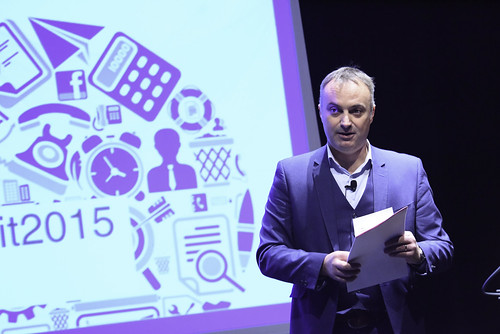Relevancy is the future for travel companies but beware the associated pitfalls. Daniele Beccari, head of travel products at performance marketing technology company Criteo, was outlining the shape of mobile in the travel sector over the next 10 years at the Travolution Summit.
_w=800_h=600_pjpg.jpg?v=20230522122229)
Travolution Summit: Criteo report finds relevency crucial for travel firms
Relevancy is the future for travel companies but beware the associated pitfalls.
Daniele Beccari, head of travel products at performance marketing technology company Criteo, was outlining the shape of mobile in the travel sector over the next 10 years at the Travolution Summit.
The organisation also published a travel flash repot called ‘Booking on mobile goes mainstream’ which was distributed at the summit.
The report was based on the “mobile evolution” of one billion bookings, measured via activity on the firm’s website.
Pauline Lemaire, head of travel UK, said: “We know that the purchase funnel is not linear.
“Criteo is looking at all this behaviour and using it to decide when during the travel life cycle it is worth investing in those users.”
Beccari said smartphones will become the main channel for transacting in the years to come.
“We will all be connected to many devices and all these devices will generate a humongous amount of data,” he said.
“It is going to get very complex for users to pay attention to a key message in all the noise and it’s also going to be complex for advertisers to get their message heard.
“The answer is relevancy. We will all need to pay attention to what is relevant to us at that point in time. Everything else is irrelevant.”
Beccari described this as a “solution for the problem for both sides”.
“Users will focus on what is relevant to them and everything else is noise,” he said. “From the advertisers’ point of view anything that’s relevant means return on investment.
“How do we get to relevancy? Personalisation is part of it.
“We used to have a notion of segments but this relies on stereotypes. You will hear less and less about segments and more about users.”
Beccari said that with access to personalisation comes user protection issues.
“It needs to be done in a legal framework and protecting user privacy,” he said.
“We have already seen regulators stepping in to change regulations and make them more strict. This is going to be the other big challenge.
“More and more data is being classified as PII (personally identifiable information). As we go forward more and more data will need to be protected.
“Penalties for merchants who abuse data are going to increase.
“Today they are relatively flat fees that for big companies aren’t very important. In the future they will be expressed as a percentage of revenue.
“We will also see the emergence of two different tactics white head and black head marketing.
“There will be merchants who stay very clean, in line with regulations and others that will try to do everything they can to grab personal data and abuse it.”
Beccari added that “product and the marketing are going in the same direction”.
“Because of the short attention span, users do not take time to go through all the stages of a transaction.”
He gave the example of Google Maps, within which Uber prices can now be shown.
“This trend towards having the product embedded in the marketing channel is going to get stronger which also means marketing teams, technology teams and product teams will have to merge,” concluded Beccari.
The key takeaways of the report are:
• Mobile accounts for most of the overall growth in travel bookings since 2014, as the share of mobile bookings has almost doubled, from 12% to 23% between Q2 2014 AND Q2 2015 worldwide. Mobile adoption appears to benefit all travel sub-categories.
• Mobile apps are generating 49% of mobile bookings for advertisers who invest in in-app tracking and advertising, for air and hotels. This is up from 12% a year ago.
• The booking device of choice varies depending on factors such as time of day, day of the week, duration of stay and type of travel booking. Smartphones account for 47% of same-day hotel bookings and 58% including tablets.
• 21% of online bookings are not correctly measured by advertisers, because the final transaction occurs on a different device to one on which the first click was made. It is 26% when the click is made on a mobile device.
• Hotel OTAs generate a higher share of bookings on smartphones compared to suppliers – 21% vs. 7%, and the difference increases as the season progresses.




